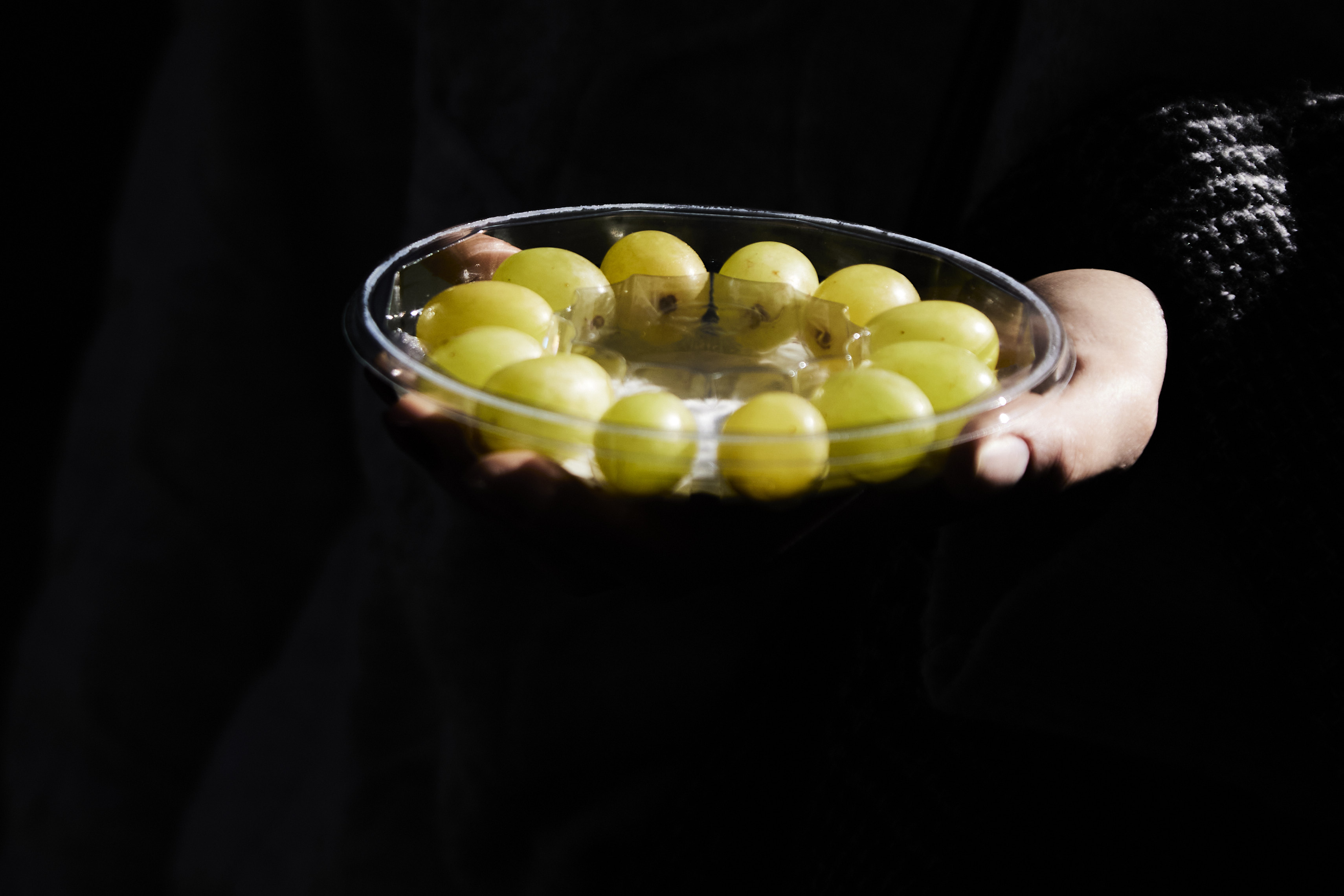How to celebrate New Year's Eve globally without leaving home
Stock up on grapes, and (safely) set a scarecrow on fire


A free daily email with the biggest news stories of the day – and the best features from TheWeek.com
You are now subscribed
Your newsletter sign-up was successful
In every corner of the globe, cultures and communities have their own special New Year's Eve traditions they believe will usher in 365 days of health, wealth or good luck. Experiencing these rituals where they originated is a treat, but you can also learn about and appreciate them from afar, celebrating the ones that resonate from the comfort of home.
Burn something

Setting fire to effigies, scarecrows and photos are a global New Year's Eve phenomenon
Setting things on fire is a common New Year's Eve ritual. Some believe it allows you to let go of painful things that happened during the year, others see it as an act of purification that will prepare you for what is ahead. In Ecuador, people burn photos they no longer want to exist or turn "sawdust-filled dummies" into politicians and "pop-culture figures" and set them alight at midnight as a "sort of cleansing ritual," Good Housekeeping said. To rack up "extra good-luck points," participants attempt to "jump over the flames 12 times, once for every month."
Across the world in Fort Kochi, India, an old man effigy known as Pappanji is burned at midnight. This symbolizes the end of a year, and there are two schools of thought on how this tradition started. Some think it dates to Christmas celebrations the Portuguese held while ruling the area during the 1500s and 1600s, but others believe it is linked to the Jewish community that lived in the area 2,000 years ago.
The Week
Escape your echo chamber. Get the facts behind the news, plus analysis from multiple perspectives.

Sign up for The Week's Free Newsletters
From our morning news briefing to a weekly Good News Newsletter, get the best of The Week delivered directly to your inbox.
From our morning news briefing to a weekly Good News Newsletter, get the best of The Week delivered directly to your inbox.
Eat 12 grapes

In Spain, you can buy a plate of 12 grapes for New Year's Eve festivities
At midnight, revelers in Spain and Latin America stop what they are doing and start "stuffing 12 green grapes in their mouths," Atlas Obscura said. Uvas de la suerte, or the 12 lucky grapes, may have started in the 1880s, when Madrid's "bourgeoisie" put their own spin on the "French custom of drinking Champagne and eating grapes on New Year's Eve." Another story says that in the early 1900s, grape farmers in Alicante, Spain, "cannily suggested the idea" as a way of getting rid of surplus harvest.
To participate, have your grapes washed and ready, and as soon as the clock strikes 12, eat a grape for each chime. One grape represents one month of the upcoming year, and if you make a wish for every grape, it "guarantees you a lucky year." If you are unable to finish all 12 in time, "you'll face misfortune." Be careful when trying this at home, and remember to chew.
Enjoy a bowl of soba

Slurping soba is one way to ring in the new year in Japan
Most New Year's Eve menus in Japan will include toshikoshi soba, with diners enjoying a bowl as they look back at the year that was and ahead at the year to come. The length of the soba noodles symbolize a "long life," Reader's Digest said, and the buckwheat flour they are made of "brings resiliency." When eating, slurping is a must, because if you "break or chew the noodle" you will not have good luck.
This tradition dates to the 13th or 14th century, Just One Cookbook said, but gained prominence during the Edo period between 1603 and 1867, when the "common class developed customary religious and superstitious rituals." When making toshikoshi soba, it is just as important to have delicious dashi (stock made with dried fish and kelp) as it is to make good noodles.
A free daily email with the biggest news stories of the day – and the best features from TheWeek.com
Hop over seven waves

Wearing white on New Year's Eve symbolizes peace in the Umbanda religion
On New Year's Eve, Brazilians head to Copacabana Beach in Rio de Janeiro to wade into the water and jump over seven waves. With each leap, "you're supposed to make a wish," Cosmopolitan said. This tradition stems from Umbanda, an Afro-Brazilian religion that blends African and local Indigenous beliefs with aspects of Catholicism. People wear all white, which symbolizes peace, and hope that the goddess of the sea, Iemanjá, "will make those wishes come true."
Many Umbanda worshipers come to Copacabana a few days ahead of New Year's Eve to bring offerings to Iemanjá, "one of their most important gods," The New York Times said. They put flowers and sparkling wine in boats they release into the sea, and when the vessels capsize, it is a "sign to the followers that Iemanjá has taken the offering."
Make a loaf of bread (then bang it on the wall)

In Ireland, any type of loaf can be used in the traditional bread banging on the walls
This Irish custom starts at Christmas, when an extra loaf of bread is baked so it is stale by New Year's Eve. Then that night, you beat the bread against the walls and doorways of your home, as this is "supposed to chase any bad spirits out" and lets you "start the new year off with a clean slate," Good Housekeeping said.
There is no specific type of bread that has to be used, so make whatever kind you would like or go down to the local bakery and pick up a day old loaf. When the bread banging is over, expect lots of crumbs on the ground, but do not despair. Instead, get started on another "centuries old custom," the Irish Post said: deep cleaning your house so it is spotless.
Throw plates at your neighbor's house

Finding a heap of broken dishes on your front lawn is a good omen in Denmark
In Denmark, tossing dishes at the doorsteps of friends, family and neighbors is "lowkey a popularity contest," Cosmopolitan said. This is because the belief is that the "more shards there are in front of your home," the "luckier and more well liked you are," explained Good Housekeeping.
While you could clean out your china cabinet to show your loved ones how much you care, consider a more recent Danish New Year's tradition instead: At midnight, jump off of a couch or chair, symbolizing your leap into the next year.
Catherine Garcia has worked as a senior writer at The Week since 2014. Her writing and reporting have appeared in Entertainment Weekly, The New York Times, Wirecutter, NBC News and "The Book of Jezebel," among others. She's a graduate of the University of Redlands and the Columbia University Graduate School of Journalism.
